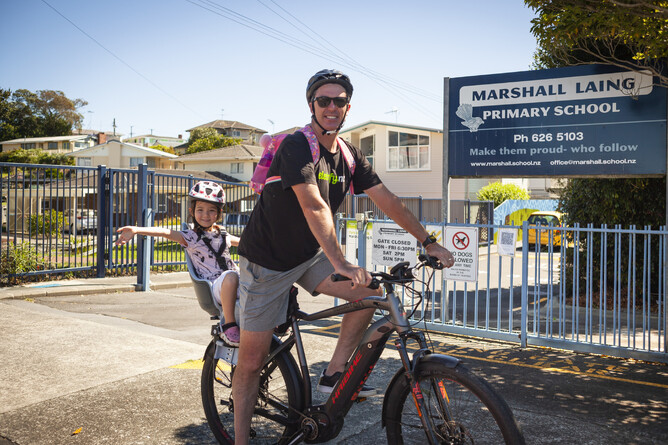With fuel prices across the country continuing to hit new highs, commuters are looking towards alternative transport methods like e-bikes to keep their monthly bills down, amidst other economic factors such as rising inflation.
Whilst the Government announced last week they are cutting 25c a litre off the petrol excise duty and road user charges for three months, the provisional forecast from the Ministry of Business, Innovation and Employment shows prices tracking on an upward trajectory.
This, and the rising cost of living due to the Consumer Price Index (inflation) increasing by 5.9% in the last year, is seeing vehicle commuters approaching Electrify NZ, New Zealand’s largest specialist e-bike supplier, in increasing numbers looking for a lower-cost, more environmentally-friendly transport option.
Electrify NZ founder Michael Tritt said customs import figures and other data suggested that over the last six years e-bike imports had skyrocketed from approximately 2,000 units a year in 2014 to 50,000 units in 2020.
In line with this rapid growth, Tritt says that Electrify NZ, which only sells e-bikes and related accessories, doubled its sales in the 2021 financial year.
Tritt knows the benefits of e-bike commuting himself, and says it costs him just 20c to charge his e-bike for 100km of cycling each week.
“The difference between that and 100km worth of petrol right now is huge, without taking into account the other costs that come with car ownership including registration, Warrant of Fitness, insurance, servicing and parking.
“While we encourage our customers to service their e-bikes every six months, from a cost perspective it just makes sense for commuters who can make the transition from a car to electric-assisted pedal power.”
More than 1.4 million working people drove a private car, truck or van to work according to the 2018 Census, and while Covid may have had an impact with New Zealanders embracing the work-from-home lifestyle, Tritt says many of these could be candidates to embrace an e-bike commute.
“Around two thirds of vehicle trips in New Zealand are 6 kilometres or less, made by single occupant vehicles, so the possibilities for replacing these trips with an e-bike are there.”
One Auckland city commuter who has made the e-bike switch is Kyle MacDonald, a psychotherapist who commutes from his home in Mt Eden to work in Ellerslie each day.
“I made the change about 18 months ago, and have found riding my e-bike a really easy activity to integrate into my week to reduce my carbon footprint.
“On the costs-side, my e-bike paid for itself within the first year as I reduced my car expenses by $3,500 (approximate cost of the bike and accessories), and it’s much easier than sweating my way to work on a standard push-bike.
“Plus, while the cost-savings are great, what’s kept me hooked in is that it is really enjoyable – it’s a lot of fun. The mental health effects are significant; it puts you out in the fresh air, it’s a moderate amount of exercise and forces you to be in the moment, be mindful and acts as an active debrief on the way home from work.”
With the frustration of sitting in traffic removed, Kyle’s e-bike has cut his commute time in half. He now only uses his car when he needs to drop the kids off around town.
“I also use my e-bike for small trips to the shops, and it was a saving grace during lockdown last year to be able to get out of the house and ride around the streets.”
